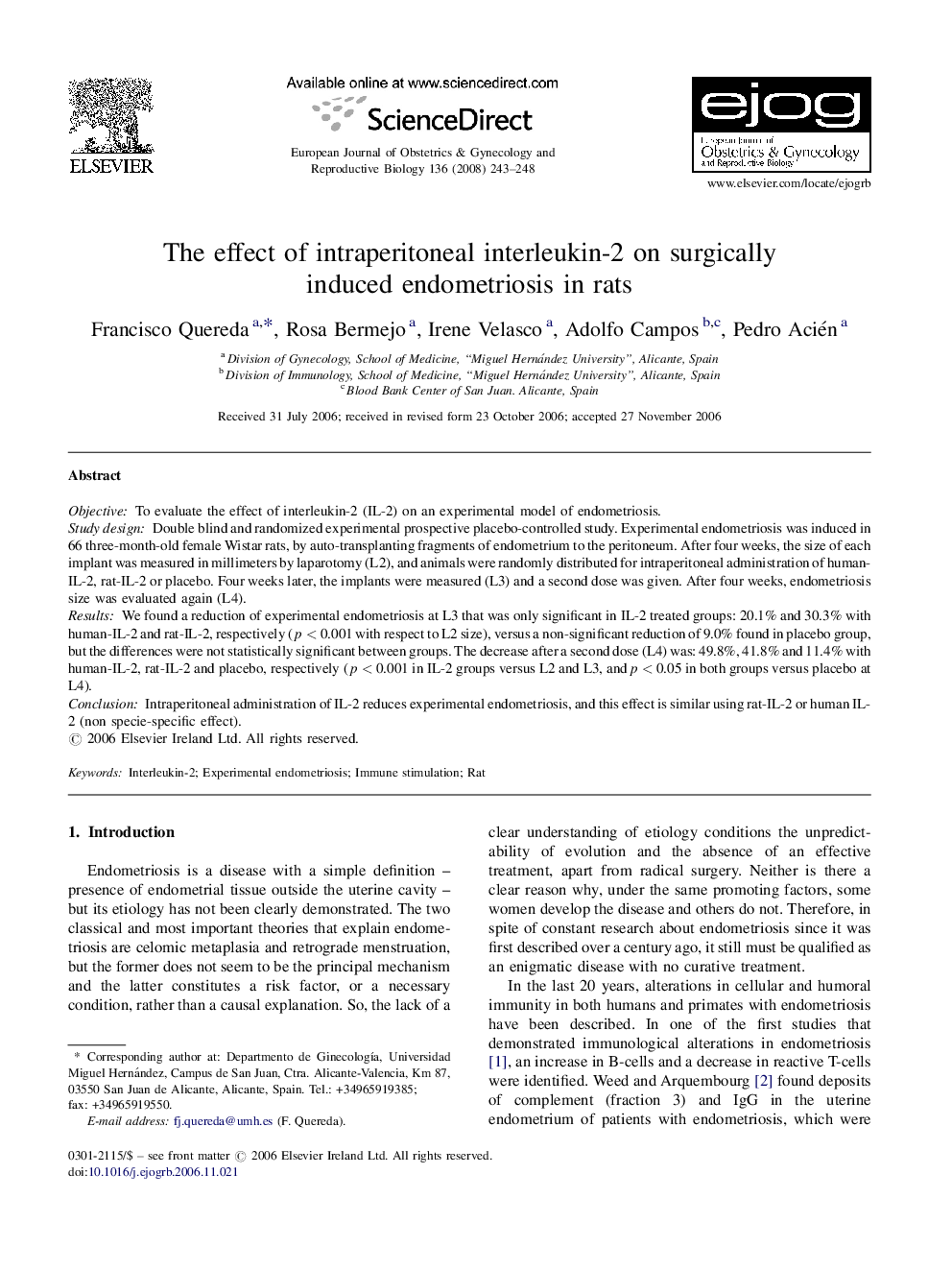| Article ID | Journal | Published Year | Pages | File Type |
|---|---|---|---|---|
| 3922079 | European Journal of Obstetrics & Gynecology and Reproductive Biology | 2008 | 6 Pages |
ObjectiveTo evaluate the effect of interleukin-2 (IL-2) on an experimental model of endometriosis.Study designDouble blind and randomized experimental prospective placebo-controlled study. Experimental endometriosis was induced in 66 three-month-old female Wistar rats, by auto-transplanting fragments of endometrium to the peritoneum. After four weeks, the size of each implant was measured in millimeters by laparotomy (L2), and animals were randomly distributed for intraperitoneal administration of human-IL-2, rat-IL-2 or placebo. Four weeks later, the implants were measured (L3) and a second dose was given. After four weeks, endometriosis size was evaluated again (L4).ResultsWe found a reduction of experimental endometriosis at L3 that was only significant in IL-2 treated groups: 20.1% and 30.3% with human-IL-2 and rat-IL-2, respectively (p < 0.001 with respect to L2 size), versus a non-significant reduction of 9.0% found in placebo group, but the differences were not statistically significant between groups. The decrease after a second dose (L4) was: 49.8%, 41.8% and 11.4% with human-IL-2, rat-IL-2 and placebo, respectively (p < 0.001 in IL-2 groups versus L2 and L3, and p < 0.05 in both groups versus placebo at L4).ConclusionIntraperitoneal administration of IL-2 reduces experimental endometriosis, and this effect is similar using rat-IL-2 or human IL-2 (non specie-specific effect).
